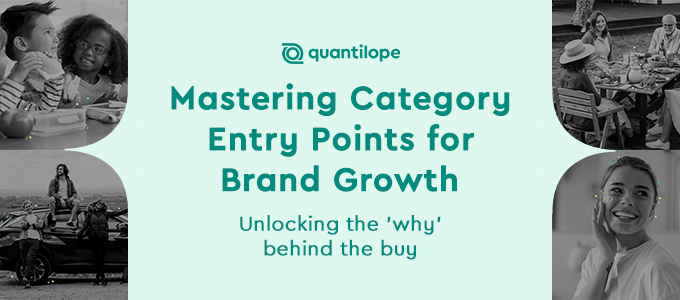Why insights teams need the agencies’ unique added value
The results of the latest ESOMAR Users and Buyers Global Insights Study show there is much to be positive about in the next 12 months, alongside clear challenges ahead for internal insights teams and their research agency partners.

Article series
Global Users & Buyers of Insights 2023
- The looming threat of insights internalisation
- Why some industry sectors internalise more of the insights function
- The projects insights clients externalise to agencies
- Any solution to the challenges insights teams face?
- Growing internal expertise, higher external demands in research
- How insights agencies will benefit from their clients’ internalisation
- Why insights teams need the agencies’ unique added value
- Understanding the next insights revolution
The results of the latest ESOMAR Users and Buyers Global Insights Study provide much to be optimistic about for the future of the Insights Industry. At the total level, the proportion of research projects being conducted internally is projected to remain stable at around 50%. In addition, the number of projects conducted in the past 12 months has either remained the same or increased for the majority of user and buyer teams surveyed.
Looking at the next 12 months, while there is much to be positive about, there are clear challenges ahead for internal insights teams to navigate, which in turn will have implications for their research agency partners. Internal insights teams are anticipating the next 12 months will involve having to deliver more with fewer resources while continuing to ensure that this research has an impact on the organisation.
Optimism for the future, or a mirage?
While there are signs globally of an economic slowdown, this does not appear to be reflected in the results of this study. Budgets are anticipated to largely remain at the same level, a more optimistic outlook than may be expected. There may be a number of reasons for this. Firstly, it is worth noting that research and insights professionals tend to be more optimistic about the industry. A recent study from NewMR on The State of Insights showed that 61% of industry professionals were either Optimistic or Very Optimistic about the state of research and insights.
There may, however, be another more pragmatic reason for these results. Internal researchers, in particular those who have been in the industry for some time, may have a more long-term outlook and realise that data and insights will be essential to help organisations navigate through challenging economic times.
Future-proofing the insights function
In order to do this, internal insight teams will need to (continue to) balance the skillset within their teams, from technical experts through to those who can effectively translate data into insight and “so what” business implications. An effective client-side team is likely to have a varied skillset and industry background beyond simply ‘data’ or ‘insights’.
Building a team with a diversity of experience across sectors, and data sources, in addition to generational and cultural backgrounds, often provides a wealth of experience to build a strong insights function. (It is worth noting that this is clearly not unique to client-side teams and is equally applicable to agency researchers!)
Challenging economic conditions means that the relationship between internal research teams and external agencies will need to continue to evolve. The number one challenge clients are facing with insights is the need to provide actionable insights instead of data. Ask any client-side researcher, and it is highly unlikely that they will tell you that they do not have enough data! At the same time, this wealth of data creates a problem – while it makes business decision-making more informed, it also makes these decisions more complex.
Agency partners who can cut through this wealth of data, join the dots between different sources and provide actionable insights will continue to be valued by clients. However, the ability to provide clients with “actionable insights” also puts an onus onto the clients to work closely with their agency partners to give them a seat at the table and provide the necessary business context to ensure the recommendations presented are relevant and actionable. This should be considered in the early stages of commissioning research, so the agency partner can build a strong understanding of their client’s business and propose a research design that is well-placed to elicit relevant and actionable insights. When done effectively, this also links to the second most cited issue faced, influencing change within the organisation.
The role of insights agencies
Increasingly, we are turning to agency partners who are able to offer expertise and a perspective that cannot be sourced internally. Given the fact that many client-side researchers are already leveraging a range of data sources and tools – survey data, customer feedback, social media, and text analytics, to name a few, it is not enough for agencies to simply provide another data source or tool. Client-side researchers have the expertise (and often the budget) to leverage relevant tools to conduct and analyse their own research.
Agencies that are able to draw on and create linkages between a range of data sources are also likely to be well-placed to deliver relevant and actionable insights to their clients. Integrating survey results with behavioural data is one example of where this can deliver impact. Agencies who can translate this into strategic insights relevant to the organisation are likely to be more valued than those who do not have that expertise.
Additionally, agencies should not underestimate their exposure to multiple industries and the value of being able to draw insights across these. Where agencies are able to draw on themes across sectors, this can provide added value to clients by validating or strengthening an insight or proposed action. This external and independent viewpoint provides a layer to research and insight studies which cannot be sourced internally.
This study provides much to be optimistic about for the future of research, with strong continued demand for research and insights and the need to leverage the expertise of both client-side and agency teams in order to deliver these. At the same time, there are clear ways in which client-side and agency research teams can more effectively partner to deliver insights that are valued and actionable.
Note: This commentary reflects the author’s own personal viewpoint and does not necessarily reflect the views of Scentre Group.
Article series
Global Users & Buyers of Insights 2023
- The looming threat of insights internalisation
- Why some industry sectors internalise more of the insights function
- The projects insights clients externalise to agencies
- Any solution to the challenges insights teams face?
- Growing internal expertise, higher external demands in research
- How insights agencies will benefit from their clients’ internalisation
- Why insights teams need the agencies’ unique added value
- Understanding the next insights revolution


